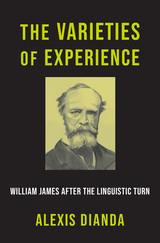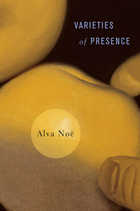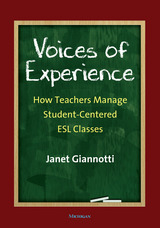3 start with V start with V

A reclamation of experience as the foremost concept in the work of William James, and a powerful argument for the continuing importance of his philosophy.
How does one deploy experience without succumbing to a foundationalist epistemology or an account of the subject rooted in immediately given objects of consciousness? In the wake of the so-called linguistic turn of the twentieth century, this is a question anyone thinking philosophically about experience must ask.
Alexis Dianda answers through a reading of the pragmatic tradition, culminating in a defense of the role of experience in William James’s thought. Dianda argues that by reconstructing James’s philosophical project, we can locate a model of experience that not only avoids what Wilfrid Sellars called “the myth of the given” but also enriches pragmatism broadly. First, Dianda identifies the motivations for and limitations of linguistic nominalism, insisting that critics of experience focus too narrowly on justification and epistemic practices. Then, by emphasizing how James’s concept of experience stresses the lived, affective, and nondiscursive, the argument holds that a more robust notion of experience is necessary to reflect not just how we know but how we act.
The Varieties of Experience provides a novel reconstruction of the relationship between psychology, moral thought, epistemology, and religion in James’s work, demonstrating its usefulness in tackling issues such as the relevance of perception to knowledge and the possibility of moral change. Against the tide of neopragmatic philosophers such as Richard Rorty and Robert Brandom, who argue that a return to experience must entail appeals to foundationalism or representationalism, Dianda’s intervention rethinks not only the value and role of experience but also the aims and resources of pragmatic philosophy today.

The world shows up for us—it is present in our thought and perception. But, as Alva Noë contends in his latest exploration of the problem of consciousness, it doesn’t show up for free. The world is not simply available; it is achieved rather than given. As with a painting in a gallery, the world has no meaning—no presence to be experienced—apart from our able engagement with it. We must show up, too, and bring along what knowledge and skills we’ve cultivated. This means that education, skills acquisition, and technology can expand the world’s availability to us and transform our consciousness.
Although deeply philosophical, Varieties of Presence is nurtured by collaboration with scientists and artists. Cognitive science, dance, and performance art as well as Kant and Wittgenstein inform this literary and personal work of scholarship intended no less for artists and art theorists, psychologists, cognitive scientists, and anthropologists than for philosophers.
Noë rejects the traditional representational theory of mind and its companion internalism, dismissing outright the notion that conceptual knowledge is radically distinct from other forms of practical ability or know-how. For him, perceptual presence and thought presence are species of the same genus. Both are varieties of exploration through which we achieve contact with the world. Forceful reflections on the nature of understanding, as well as substantial examination of the perceptual experience of pictures and what they depict or model are included in this far-ranging discussion.

Voices of Experience was designed and written with teachers-in-training and seasoned professionals in mind; the book would be used differently by each.
The book has five units: The Classroom Environment, Lesson Planning, Pair and Group Work, Classroom Interactions, and Classroom Trouble Spots. Each unit has two or three chapters that discuss the survey responses and relevant quotes from participants. Each unit concludes with a Connections section that features:
· *Challenging Beliefs: What Teachers Think, which presents a statement for readers to respond to and compare their responses to others who completed the survey.
· * Classroom Connections: What Teachers Do, which lists reflection or discussion questions
· * Strategies and Motivations: What Teachers Say, which presents more quotes from respondents, particularly those that look at what’s behind teachers’ choices. These too could be used for reflection or discussion.
READERS
Browse our collection.
PUBLISHERS
See BiblioVault's publisher services.
STUDENT SERVICES
Files for college accessibility offices.
UChicago Accessibility Resources
home | accessibility | search | about | contact us
BiblioVault ® 2001 - 2024
The University of Chicago Press









